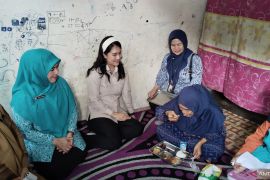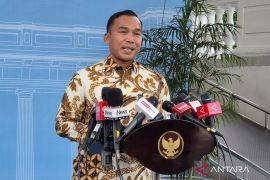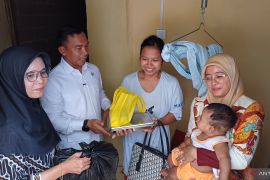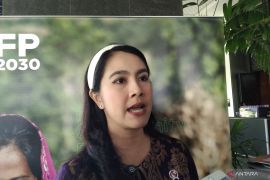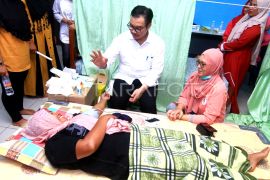Indonesia has launched the Kampung KB as part of its efforts to revitalize the national family planning program that will help improve the health of its citizens.
Family planning program in Indonesia has become a role model for many developing countries after it succeeded in reducing total fertility rates and population growth.
In the past several years, the countrys family planning program did not see any significant progress, and needed to be revitalized through the Kampung KB program.
According to Lebak Department of Population Control, Family Planning, Women Empowerment and Child Protection (DP2KB-P3A) Chief Muzakir Hakiki Atim, Kampung KB is believed able to generate community participation in realizing village development towards prosperity.
Muzakir remarked in Lebak on Sunday that the local government encouraged the Kampung KB to be the locomotive of development agents in the villages with the aim of overcoming poverty and unemployment.
Moreover, Lebak District still bears the backward areas so it needs hard work to catch up with it.
But Muzakir said the presence of Kampung KB in 28 villages from 28 sub-districts in Lebak is really capable of prospering the community.
According to him, the success of the Kampung KB is inseparable from the high public participation to support the empowerment of various fields of development, such as economic, social, education, health and culture.
Currently, he said, community economic actors in Kampung KB grow with the small and medium business actors (SMEs) in producing various foods, bamboo handicrafts, and even metal industry production.
"We appreciate the presence of Kampung KB in Lebak, because based on the results of field evaluation, the program is capable of prospering the local community," Muzakir said.
Further, he noted that the local government as a public servant, will of course work hard through the work unit of the local area to encourage the welfare of Kampung KB community in Lebak, Banten Province.
In addition, the Indonesian easternmost province of Papua has also made a significant progress with family planning program with an increasing number of Kampung KB in a number of districts.
According to Papua National Demography and Family Planning Office (BKKBN) spokesman Charles Brabar, the number of Kampung KB in Papua continues to grow in line with the Nawacita Program of President Joko Widodo (Jokowi) to build Indonesia from the rural areas.
Charles remarked in Biak, Papua, on Tuesday, that until the end of August 2017, there have been 29 Kampung KB in almost all districts in the province of Papua.
The presence of the family planning villages in some districts in Papua, according to Charles, has provided an understanding for both the pregnant women and those who have just given birth to regularly check their health at the health integrated service posts, or Posyandu.
Kampung KB is a miniscule part of guiding demographic changes in a progressive fashion. Family planning and family development programs must involve all elements in the National Demography and Family Planning Agency.
Through the Kampung KB, the government wants to enhance public awareness about the importance of family planning as its benefits extend beyond just a womans health to her entire well-being and prosperity.
When couples choose to have smaller families, it also ensures that they will enough means to provide for them and build a more prosperous future not only for themselves, but for the entire nation.
Accordingly, all villages need to have Kampung KB to support the success of family planning program. This will result in a better quality of life and will also help underprivileged families.
"Kampung KB is designed to be a model of integrated development pertaining to the population, and will be implemented at the micro level," BKKBN Head Surya Chandra Surapaty said some time ago.
The family planning program is expected to further improve the welfare of the community and to break the chain of poverty.
According to him, the family planning will also result in people paying more attention to aspects such as the ideal age for marriage, ideal distance between child births, the number of children, expenses required for education and health of the entire family.
Moreover, some years down the lane, Indonesia will be able to reap the demographic bonus, a condition where it will have more people in the productive bracket than unproductive citizens, such as the elderly and children.
Of course, even a demographic bonus can turn into a disaster unless it is properly controlled with good planning.
The transmigration program, long out of the spotlight, needs to be revived.
Transmigration is important for Indonesia as the country has a high rate of population explosion.
Transmigration is proven to have made a considerable contribution to the economic growth in various areas that were not too well populated.
On the other hand, demographic bonus can lead to better economic development and progress in the fields of agriculture and industry.
The government and the younger generation must be prepared for the demographic bonus that Indonesia is predicted to witness after 2020.(*)
Reporter: Otniel Tamindael
Editor: Heru Purwanto
Copyright © ANTARA 2017

